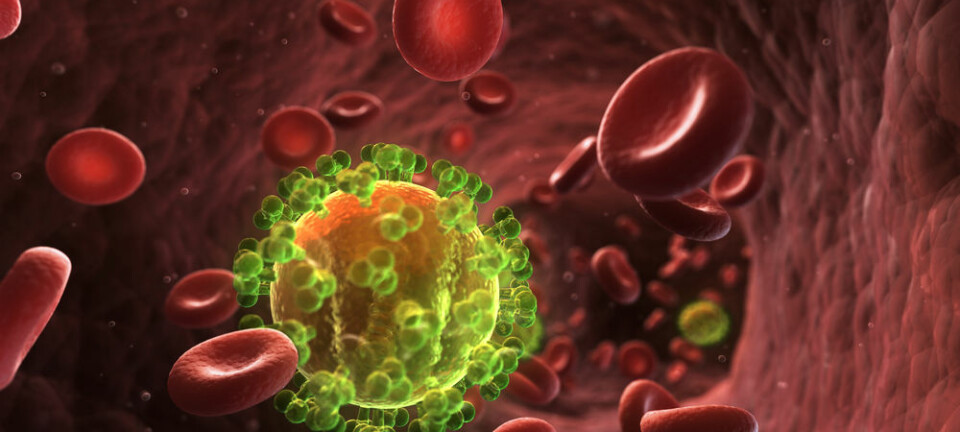
New study shatters established knowledge of the immune system
Danish scientists discovers how the immune system is activated to break down bacteria. The experiments disproves a prevalent established theory about the immune system.
Scientists from Aarhus University’s Department of Biomedicine have provided an in-depth description of how a crucial enzyme in the immune system is activated and sets off a molecular chain reaction which eliminates bacteria and fights infections.
The discovery completely changes our understanding of how the immune system is activated when bacteria invade the body.
“We’ve been up against a considerable opposition because we broke with the childhood learning of a few seasoned researchers,” says PhD Søren E. Degn, co-author on the study which was recently published in Proceedings of National Academy of Sciences.
The discovery presents entirely new basic knowledge of a defence mechanism in the complement system of the immune system, he says. “In the long term, the discovery could open the door for developing new medication but getting through with our idea has cost blood, sweat, and tears,” says Degn.
Theory about activating enzyme is wrong
The scientists made the discovery when they were experimenting with artificially made MASP-1 enzymes. During their experiments they realised that their MASP-1 enzymes weren’t behaving in the way that a theory used for years claimed they should.
A bit of background history is necessary if we are to understand how the Aarhus scientists broke with contemporary immunological learning:
MASP-1 is the very first enzyme in the immune system that is activated when a microorganism gains entry to the body. Scientists have known this for a long time.
When MASP-1 is activated, it triggers a chain reaction -- in popular terms the enzyme is the immune system’s start button. The team from Aarhus helped show this in 2011, after Degn was the first person ever to create an artificial active MASP-1 enzyme.
Until now, no one has demonstrated in the laboratory how MASP-1 reacts to a microorganism that forces its way into the body. That is to say, that we have not known precisely how the enzyme activates the complement system at the molecular level.
For many years everyone has believed in a complex theory that says the activating mechanism is triggered because a molecular change takes place in a protein (a so-called pattern-recognising protein) that sits on the surface of MASP-1. This is the theory that has been printed in text books all over the world.
The new study shows that the old theory is incorrect: changes do not take place on the surface structure of the pattern-recognising protein when the MASP-1 enzyme recognises a microorganism.
Instead, something else happens.
When the pattern-recognising protein recognises the surface patterns of a bacterium, a large amount of MASP-1 clusters within a small area and sets about starting another enzyme known as MASP-2.
The enzymes activate each other, thus triggering the immune system’s defence mechanisms.
Dogmas are difficult to kill
Degn is pleased that after many months of hard struggle, his result has finally been recognised and published -- but he is vexed by the process.
“I was surprised to discover that even in experimental science, an unproven idea like the one that has existed regarding the MASP-1 enzyme, has become so ensconced in the field as to end up as a kind of dogma that was extremely difficult to do anything about. We met tough opposition within the system,” he says.
Professor: This is pioneering work
Associate Professor Søren Hansen, a researcher in Cancer and Inflammation at the University of Southern Denmark, was not involved in the study himself but is extremely enthusiastic about the result.
“I know the group from Aarhus because I have been following their work for several years. They have achieved some impressive results and did a lot of good work prior to the study that has now been published,” says Hansen.
He says the study is pioneering work that will change our conception of how the human immune system function functions. Their findings will most certainly be included in future immunology textbooks as an explanation of how the complement system is activated,” he says.
---------------
Read the original story in Danish on Videnskab.dk
Translated by: Hugh Matthews








